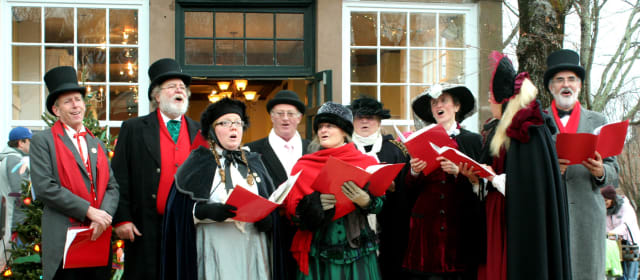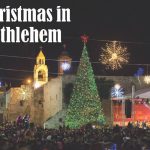#Christmas #Christian #carols #carolers #choir #singing
“Great music allows us to worship in a personal way, it allows us to feel like we are leading the worship, actively inviting other people to take part, this is Key spiritually” –Paul Ebeling
Singing and Christmas go together, like plum pudding and hot buttered rum. Even those who would not normally attend a choir concert or church service throughout the yr might happily participate in a civic Carols by Candlelight or a Midnight Mass.
In these settings, the carols come out and everyone joins in.
The Big Q: What is the origin of the choral music which adorns these settings?
The Big A: The tradition of carol singing dates from the Middle Ages and was not restricted to the Christmas season. There were carols for Easter, for New Year.
The poetic form was simple: a succession of stanzas with different texts, interspersed with a recurring refrain. In more recent times, the term “carol” has come to mean any song associated with Christmas.
Medieval carols from England have survived, though transformed. Good Christian Men, Rejoice dates from the 14th Century, though only its text has been reliably attributed, to the Dominican friar Heinrich Seuse. The melody is known in Latin as In dulci jubilo (in sweet joy), and has been frequently used as the basis of extended instrumental or vocal compositions.
During the centuries between the 1st iteration of a carol tradition and the Dickensian revival of the Christmas spirit in the mid-1800s, there was comparatively little in the way of English composition of new works in this genre. A few pieces that are more appropriately termed Christmas hymns were produced during the 18th Century.
One of these is Adeste fideles or O Come, All Ye Faithful. Its authorship is disputed, but the most likely source is the 1751 volume Cantus diversi, published by John Francis Wade. Like most other Christmas carols, its text has clear Christian references.
The most famous Christmas carol of all time is undoubtedly Silent Night, Holy Night . The original words for Stille Nacht, heilige Nacht were written by Joseph Mohr in Y 1816 and the melody 2 yrs later by Franz Xaver Gruber, when both were living in villages near Salzburg.
The tradition of singing Christmas carols is embedded in the season, even though the contexts where they are performed may differ widely from that where the words and music originated, and there is something reassuring about hearing and singing them once again, with feeling, every Christmastime.
Have a healthy, Happy Christmas Holiday, Keep the Faith!









